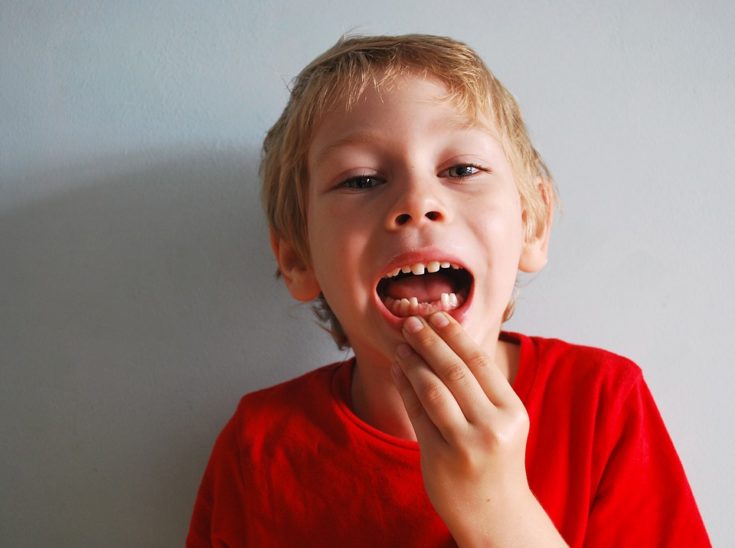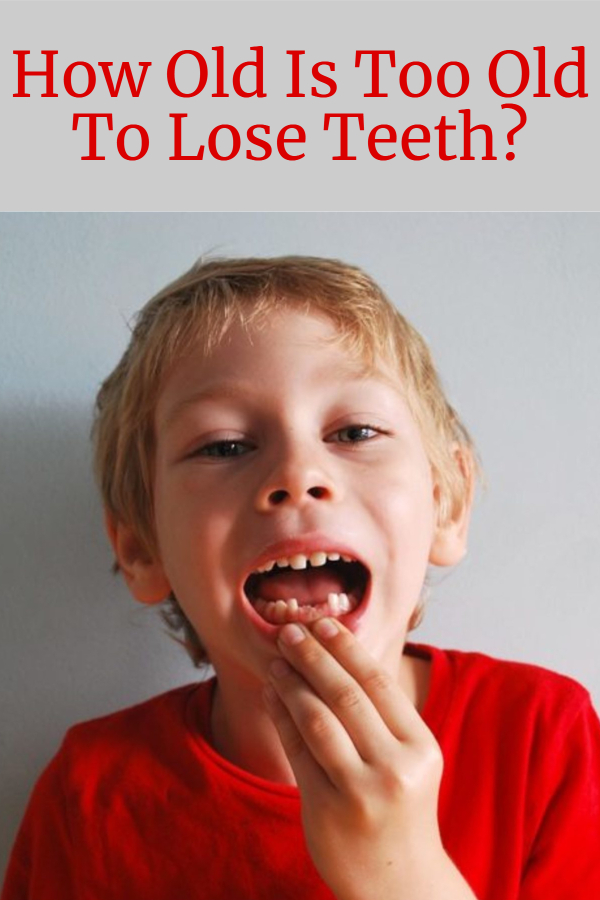Disclosure: This post may contain affiliate links, meaning we get a commission if you decide to make a purchase through our links, at no cost to you. Please read our disclosure for more info.
Most parents want their children to follow all of the recommended health charts for growth and development and feel great concern when a child is late in development.  One problem that does not occur often but can cause great distress when it does is when baby teeth fail to fall out on time. Depending on its cause, this may be no problem at all, or it may signal that a dentist should be consulted. Read on to learn more about this problem.
One problem that does not occur often but can cause great distress when it does is when baby teeth fail to fall out on time. Depending on its cause, this may be no problem at all, or it may signal that a dentist should be consulted. Read on to learn more about this problem.
In This Post:
What Is Normal for Baby Teeth?
Baby teeth normally erupt between the ages of 6 and 15 months. However, some babies may have them develop much earlier than this and may even be born with them. Generally, the timing of baby teeth eruption should mirror the timing of when they should begin falling out with later arrival leading to later tooth loss.The first baby tooth usually becomes loose and is lost around the age of six. However, some children may begin losing them at the age of four or may not start losing them until the age of seven. Once the baby tooth falls out, the permanent tooth will be allowed to erupt.
Causes of Late Loss
In some cases, baby teeth may not fall out within this typical timeframes. There are several reasons why this could occur, some of which are concerning and others which are not. Most often, the permanent teeth located below the baby teeth simply have not developed enough to begin their eruption and are on a later than usual schedule. However, in some instances, the permanent tooth may actually be missing or may be crowded in the jaw due to a small mouth. In these cases, the baby tooth will not be naturally pushed out of the mouth. Another problem leading to late loss could be that the baby tooth may be fused to the bone beneath it, leading to impaction of the permanent tooth.
Possible Orthodontic Issues with Baby Teeth
In general, there are no long-lasting problems due to the late eruption of permanent teeth. However, in some cases, children may see greater orthodontic issues due to their baby teeth not falling out on time. In fact, these children are more likely to require orthodontic care, such as braces, than are children who lose their baby teeth on time. Additionally, if the permanent tooth comes up behind the baby tooth it may not cause the baby tooth to be lost and could lead to a double row of teeth, which would need to be resolved by your dentist or orthodontist.
Other Health Issues
If your child does not begin losing baby teeth around the same time that his or her friends and classmates are losing theirs, he or she may feel left out, which could lead to problems with self-esteem and confidence. Children may feel as if they have been left in babyhood and are not growing up. Children should not try to pull out their own baby teeth if they have not become loose because this could lead to additional dental problems. In actuality, the longer a permanent tooth remains in the jaw, the more time it has to harden and become impervious to cavities.
When to Head to the Dentist
Children who have not yet begun losing their baby teeth and who are eight years old or older should be taken to the dentist to determine if there are any underlying problems impeding the loss of these teeth. Additionally, you should check with your child’s dentist if your child has any jaw or mouth pain where baby teeth are, if a permanent tooth comes up in front of or behind a current baby tooth or if all of the baby teeth have not fallen out by the time the 12-year molars are in place.Most of the time, baby teeth will eventually fall out without requiring any additional help from the dentist. Even though this may be delayed, it does not necessitate special treatments. However, if you have any concern about this at all, be sure to ask your child’s dentist because he or she may need to take x-rays to ensure that everything is developing in the mouth the way it should be. Along the way, make sure that you or your child is caring daily for the teeth that do exist because poor dental care can lead to cavities and dental problems later in life.
